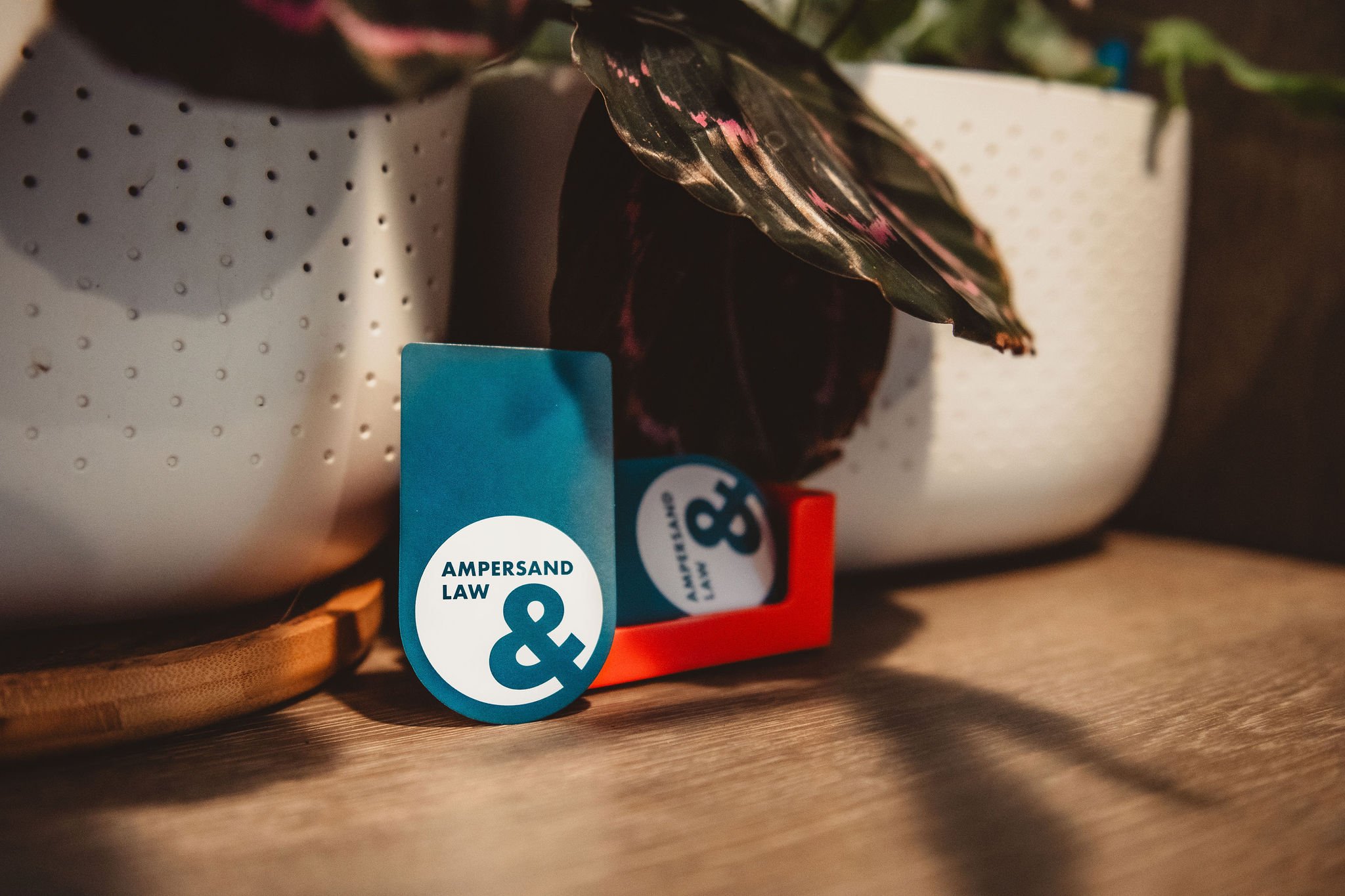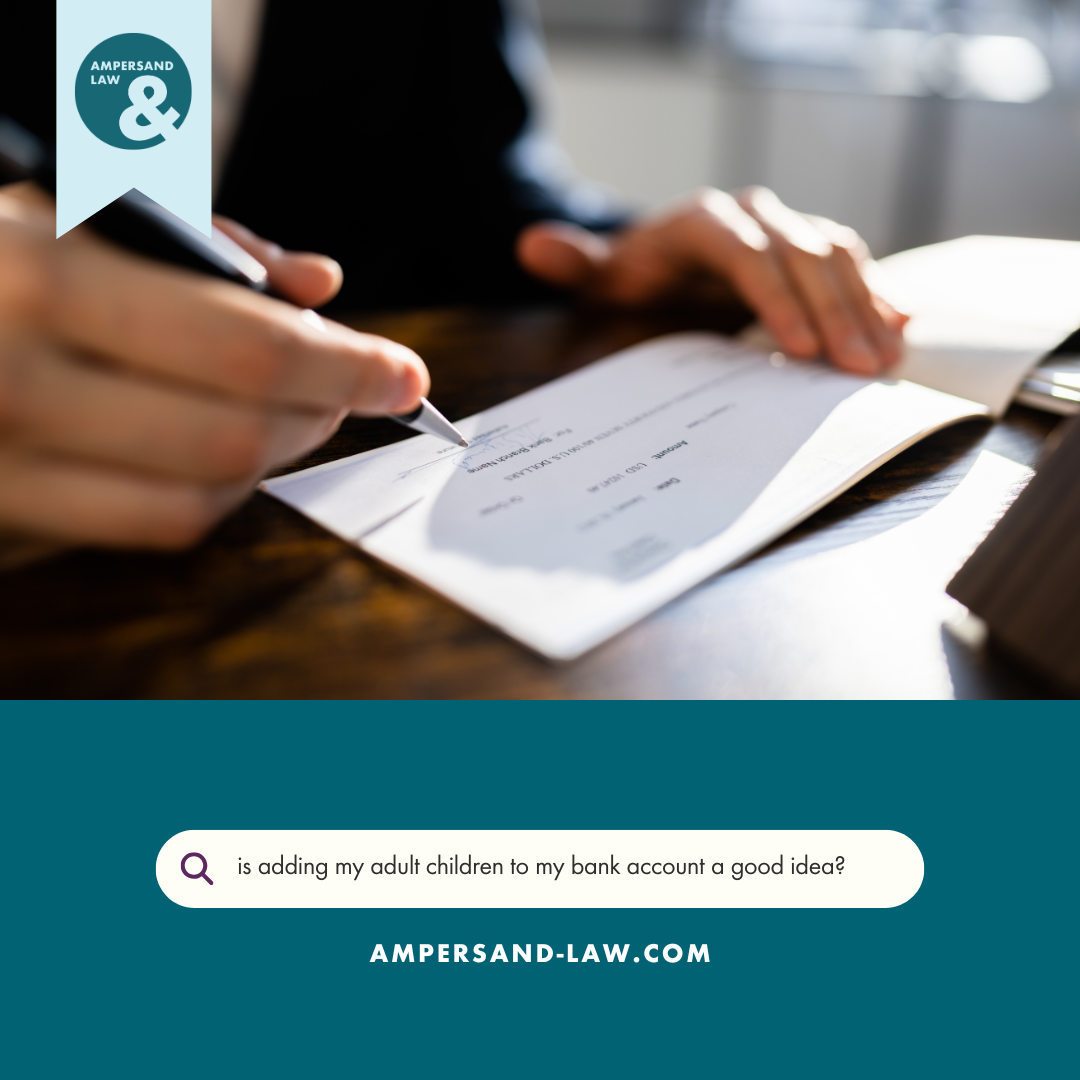
Resource Library
The &Law Blog
Demystifying Estate Planning & Administration
Writing a Letter of Last Instruction
When it comes to planning for the future, one of the most thoughtful gifts you can give your loved ones is a clear set of last instructions. These instructions can provide guidance and peace of mind during an emotionally challenging time. A Letter of Last Instruction is a document that provides additional information and instructions to your loved ones and designated decision makers to be read and used in the time leading up to and after your death. Beyond sharing logistics and practicalities, writing a LOLI is an opportunity to share your thoughts and wishes, honoring your life and the impact you've made on those around you. Keep reading to learn about the types of information to include in your LOLI as well as a sample letter to help you get started.
What are the Rights of a Surviving Spouse in a Probate/Estates Proceeding?
What are the rights of a surviving spouse in a probate/estate proceeding? If your spouse dies and leaves you nothing in their Will, do you have any rights? What if they didn’t have a Will? What if you’ve been living separately for years, but aren’t legally separated (requires a separation agreement) or divorced (requires a court order of final divorce)? Presuming the Deceased Spouse (DS) died with a Will* in place, the Surviving Spouse (SS) may be eligible to receive more than DS’s Will provides using the Year’s Allowance (YA) and Elective Share (ES) court processes. The following is a brief, general summary of each for informational purposes only.
Minimizing Your Probate Assets without a Revocable Living Trust
When clients ask me how to avoid probate, I always point out that entirely avoiding probate is often impossible due to a few things (mostly refunds of bills and taxes requiring advance payment) that you cannot control before death. The better question is how to minimize probate, as that is something within your control. Minimizing probate is possible by creating a Revocable Living Trust and/or by maximizing strategies that keep assets out of probate. This blog post details some of the most common ways to minimize probate.
Obergefell on the line
The US Supreme Court legalized same sex marriage across the United States on 6/26/2015 in the landmark case Obergefell v. Hodges. Since then, it has been under attack. Emily Kelchen from Raise the Bar interviewed me about how these attacks are impacting members of the LGBTQ+ community and what their lawyers need to know.
529 Accounts: What Happens After Death?
529s are essential parts of many people's plans for future education costs. Taking steps now to secure your 529 in the event of your or your beneficiary's death is a necessary, but often overlooked, part of estate planning.
Ensuring Your Executor Remembers You Fondly
Creating an estate plan is a huge accomplishment. Beyond that, there are additional proactive steps that can ease the burden on your Executor and loved ones after your death. This blog post outlines key actions you can take today to minimize stress, ensure your wishes are honored, and help your Executor and loved ones remember you fondly, instead of with frustration.
Nominating Co-Guardians: Additional Considerations
When considering nominating Co-Guardians for minor children, several important factors must be considered. This blog post reviews the legal process involved and issues unique to Co-Guardian nominations. This guidance is essential for anyone looking to make informed choices regarding child Guardianship nominations.
Your First Dos and Don'ts When a Loved One Dies
Your First Dos and Don'ts When a Loved One Dies
It can be overwhelming to know what steps to take when a loved one dies. During this deeply emotional time, the fear of making mistakes can add to the stress. Here are some Dos, Don'ts, and FAQs to guide you through this challenging period. Navigating the aftermath of a loved one's passing is never easy, but following these guidelines can help ensure that you honor their wishes and handle their affairs responsibly.
Debt at Death
Common: having debt at death.
Uncommon: knowing what happens to it & who pays.
Here are four essential takeaways about debt at death.
Q&A: When Should I Rewrite My Will?
QUESTION: When should I rewrite my will?
ANSWER: It depends on what has changed in your life since it was first written. Keep reading to find out some of the most common times when revision is either a good idea or even necessary.
(Un)Safe Deposit Boxes
A safe deposit box (aka safety deposit box) is a great place to store valuable and/or important things, right? Well, it depends (and yeah, it's totally fine to insert a groan here for this classic lawyer non-response).
What about digital/online accounts?
Want to ensure your loved ones have easy access to your digital accounts after you die? Keep reading to learn how.
Updating Existing Estate Plan Documents
Can estate plan documents be updated? How do I change my Will? Can I name a different Durable General Power of Attorney?
What's the difference between a Will and a Trust? Are all Trusts the same?
Do you need a Revocable Living Trust? Or is a Will enough? How can you know? What are the differences between Trusts and Wills?
FAQ: Can a Trust Protect My Identity?
Can a Trust protect your identity? Let's say you win the lottery. Or you're a celebrity or have a high-profile job (like a politician, a judge, and/or a law enforcement officer). Perhaps you've got a lot of debt. Or maybe you're just a really private person. Whatever the reason, you want to disconnect your name from property that you own. So, can a Trust help you do that? The quick answer is probably not.
FAQ: Is adding my adult children to my bank account(s) a good idea for estate planning?
Many clients wonder what to do about bank accounts for estate planning purposes. The best option(s) for you may not be the best option for another person. And it might not be what your friend or family member did (or told you to do). Keep reading for the basics on your options, along with some points of consideration.
FAQ: What happens when you die without a Will?
Fact: Chadwick Boseman died without a Will. And he’s not alone in this. Research shows that nearly 70% of adults in the United States don’t have Wills. So, what happens if you die without a Will? In a nutshell: the laws of your state take over. What does that mean? Keep reading…
FAQ: What happens to debt at death?
FAQ: What happens to debt at death?
If you die with debt, those debts generally become the responsibility of your estate. Keep reading for all the info.
FAQs about Revocable Living Trusts
FAQs about Revocable Living Trusts: What is a trust? What is a revocable living trust? What are the PROs of having a revocable living trust? What are some MYTHS about revocable living trusts? What are the CONS of having a revocable living trust?




















